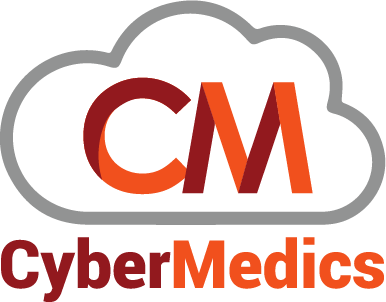
How Microsoft Power Platform Consulting Revolutionizes Business Processes
Using a qualified firm, like CyberMedics, to provide Microsoft Power Platform Consulting is essential for businesses aiming to revolutionize their operations through data-driven insights and process automation. This article details how a specialized focus on Microsoft Power Platform Consulting enables companies to leverage Power BI for enhanced data visualization, utilize Power Apps for enterprise app development, and harness Process Automation to refine business processes.
Understanding Microsoft Power Platform Components
Microsoft Power Platform is a comprehensive suite designed to enhance business efficiency through a unified low-code approach, facilitating the creation and deployment of tailored applications. Here are the core components that form the backbone of this transformative platform:
Dataverse
At the core of the Power Platform, Dataverse provides a scalable data framework that securely stores and manages data utilized across business applications. It supports extensive customizations, including plug-ins for business logic, integration with external systems via webhooks, and virtual tables for incorporating external data sources.
Power Apps
Power Apps is pivotal in the Microsoft Power Platform, providing a low-code environment that empowers users to build custom business applications. It features two primary types of apps:
· Canvas Apps: These allow designers to craft a user interface freely, offering pixel-perfect control over layouts and navigational flows.
· Model-Driven Apps: Built on the Dataverse framework, these apps are inherently data-centric, automatically generating UI based on the underlying data model.
Power BI
Power BI offers robust data visualization tools that aid businesses in making informed decisions based on analytics. It allows integration into applications and websites, and developers can create custom visuals using its open-source SDK.
Power Automate
Power Automate enhances organizational efficiency by automating routine workflows and processes across multiple applications and services. Power Automate supports both automated and interactive flows, integrating seamlessly with hundreds of apps and services through built-in or custom connectors.
Power Pages
Power Pages is dedicated to building secure, enterprise-grade business websites using a low-code approach. It supports advanced customizations using HTML, CSS, and Liquid templates, and integrates tightly with Dataverse to extend functionality through APIs.
Power Virtual Agents: Intelligent Virtual Assistants
Power Virtual Agents empower businesses to build and deploy intelligent virtual assistants. These agents can interact with customers and employees, providing instant responses to inquiries and supporting an enhanced user experience.
These components are not only integral to building and deploying innovative business solutions but also provide a foundation for a comprehensive digital transformation strategy, enabling companies with the versatility and power to meet diverse business needs.
Strategies for Integrating Power Platform into Your Business Processes
Establishing a Center of Excellence (CoE)
A Center of Excellence acts as the strategic nucleus for deploying the Microsoft Power Platform within an organization. By establishing a CoE, businesses can standardize maintenance workflows, reporting, and best practices, ensuring a consistent approach across various departments. This central body also plays a crucial role in customizing the integration strategy to align with organizational needs and preferences, significantly enhancing operational efficiency.
Integration and Customization Strategies
Identify Business Needs: Determine specific business processes that can benefit from automation and customization using the Power Platform. This includes areas like revenue processing, sales, marketing, and HR.
Align with Strategic Goals: Connect the deployment of Power Platform solutions with key performance indicators (KPIs) and objectives and key results (OKRs) to support the company’s strategic vision.
Develop Custom Solutions: Utilize Power Apps to create tailored applications that address unique business challenges, enhance functionalities and user experiences.
Seamless Integration with Microsoft Ecosystem: Leverage the Power Platform’s ability to integrate with other Microsoft services like Dynamics 365, Azure Cloud, and Microsoft 365 to create a cohesive technology environment.
Operational Implementation and Management
· Assign Roles and Responsibilities: Clearly define the roles of admins and other key stakeholders within the Power Platform environment to ensure effective management and governance.
· Environment Strategy and Data Management: Establish comprehensive data loss prevention (DLP) policies, manage user capacities, and handle licensing to safeguard data and optimize resource allocation.
· Promote Reusability: Encourage the use of standard templates and reusable components across the organization to reduce development time and foster a culture of efficiency.
Leveraging Low-Code for Agile Development
The Power Platform’s low-code/no-code capabilities allow rapid development and deployment of applications, significantly reducing project turnaround times. This agile environment supports quick iterations and real-time feedback, enabling businesses to adapt swiftly to market changes or internal demands.
Executive Engagement and Support
· Acquire Executive Sponsorship: Ensure that leaders are actively involved in the initiative, providing necessary support and resources. An executive sponsor with expertise in Power Platform use cases can drive the adoption and successful integration into business processes.
· Continuous Tracking and Optimization: Regularly monitor and analyze performance metrics to assess the impact of implemented solutions and identify areas for further improvement.
By following these strategies, organizations can effectively integrate Microsoft Power Platform into their business processes, unlocking new levels of efficiency and innovation.
Overcoming Challenges with Microsoft Power Platform Consulting
As businesses integrate Microsoft Power Platform into their operations, they often encounter specific challenges that require expert solutions. One such challenge is the implementation of Robotic Process Automation (RPA) in areas like HR onboarding and supply chain management. Power Automate Desktop, while powerful, presents hurdles that need strategic approaches to overcome.
Another common issue is the limitation in Power Apps’ ‘Person’ column, which restricts selections to 20 users. A practical solution involves utilizing the SearchUser function with specific properties to extend this capability, ensuring broader accessibility and functionality.
Businesses also benefit from customized consulting options and managed services, which are crucial for navigating the complexities of Power Platform implementation. These services are supported by professionals with strong analytical, problem-solving, project management, and communication skills, essential for delivering successful outcomes.
Furthermore, the market demand for functional consultants with expertise in Microsoft Power Platform is growing. These consultants play a pivotal role in crafting solutions for diverse challenges such as customizing landing pages with Power BI reports, managing business-recognized email signatures, and revamping feedback processes traditionally handled by Voice of the Customer.
Strategies for Successful Implementation
Identifying Business Needs and Objectives
To ensure a successful implementation of Microsoft Power Platform, it is crucial to start by identifying the specific business needs and objectives. This involves a detailed analysis of existing processes to determine areas that require improvement and can benefit from automation and digital transformation. Capturing these needs accurately aids in defining clear business goals and strategic plans.
Establishing a Center of Excellence
Creating a Center of Excellence (CoE) is fundamental in fostering an environment of standardization and best practices. The CoE serves as a hub for regulating maintenance workflows, reporting, and governance, ensuring that the Power Platform is utilized optimally across the organization. This includes setting up dedicated teams such as the Microsoft Power Platform Admin Team and the Nurture Team, who are responsible for overseeing platform implementation and encouraging its adoption.
Measuring Business Value
Aligning the Power Platform implementation with key performance indicators (KPIs) and objectives and key results (OKRs) is essential to track and measure the business value generated. Regular analysis of these metrics helps in assessing progress towards achieving strategic goals and identifying areas for improvement.
Executive Sponsorship and Leadership Buy-In
Gaining executive sponsorship and leadership buy-in is crucial for the successful adoption of the Power Platform, especially in larger organizations. This support not only secures the necessary resources but also ensures that the implementation is aligned with the overall business strategy.
Low-Code Strategy Implementation
Utilizing the low-code capabilities of the Power Platform enables businesses to automate core tasks efficiently. This strategy allows developers to focus on higher-value activities by leveraging drag-and-drop tools and pre-built templates, thus accelerating digital transformation.
Collaboration and Stakeholder Engagement
Effective implementation requires continuous collaboration between stakeholders and development teams. This ensures that all parties are aligned and can contribute to the platform’s success. Additionally, providing end-user training and support is vital to maximize adoption and usability.
Implementing these strategies not only facilitates a smooth integration of the Microsoft Power Platform into business processes but also maximizes the return on investment by enhancing operational efficiency and productivity.
The Benefits of Microsoft Power Platform Consulting
Microsoft Power Platform Consulting offers a multitude of benefits that directly impact operational efficiency and financial performance. Here’s an overview of the key advantages:
Streamlined Operations and Cost Reduction
The integration of Microsoft Power Platform can streamline business operations significantly. A recent study highlights a 502% ROI with a $25.92 million NPV over three years for organizations utilizing Power Platform. Additionally, application development costs are cut by 48%, with substantial savings from replacing third-party applications and tools.
Enhanced Productivity and Efficiency
Organizations adopting Power Platform report a clear boost in productivity. Efficiency gains range from 3% in the first year to 5% by the third year, translating into a risk-adjusted time savings valued at $10.2 million over three years. This increase in productivity directly contributes to an enhanced bottom line, with operating margins growing from 12.0% to 12.5%, resulting in $15.8 million in additional operating revenues.
Broad Adoption and Expertise Development
The Power Platform’s growing adoption is evident with 33 million monthly active users and over 350,000 organizations utilizing Power Automate monthly. This widespread use fosters a rich ecosystem of knowledge and continuous improvement, enhancing internal expertise and productivity across industries.
Significant ROI and Rapid Payback
Businesses experience a substantial return on investment when adopting Power Apps and Power Automate, with a 362% ROI and a payback period of less than three months. These figures underscore the financial viability and effectiveness of integrating Power Platform into business processes.
Automation and Customization
Microsoft Power Platform empowers organizations to automate end-to-end business operations and customize solutions to meet specific needs without extensive coding. This capability not only speeds up the digital transformation but also ensures that solutions are perfectly aligned with business objectives.
By leveraging these benefits, organizations can not only enhance their operational efficiency but also achieve significant cost savings and revenue growth, proving that Microsoft Power Platform Consulting is a pivotal investment in today’s digital economy.
Conclusion
Throughout this article we’ve underscored the critical role played by Microsoft Power Platform Consulting in driving digital transformation and operational efficiency. Utilizing core components such as Power BI, PowerApps, Power Automate, and more, provides the foundation for streamlined operations, enhanced decision-making, and agile development strategies.
The discussion on the multi-faceted advantages – from streamlined operations to significant ROI – highlights the platform’s capacity to revolutionize business processes and foster a culture of continuous improvement and innovation.
As businesses seek to navigate the complexities of digital transformation and unlock new efficiencies, the guidance of expert consulting becomes invaluable. Microsoft Power Platform Consulting not only aids in overcoming implementation challenges but also in customizing solutions that align perfectly with strategic business objectives. For organizations looking to maximize their investment in digital transformation and scale confidently, expert guidance is just a click away at www.CyberMedics.com. With the right consulting partner, businesses can harness the full potential of the Microsoft Power Platform, ensuring a sustainable competitive edge in today’s digital economy.
FAQs
1. What is the main function of Microsoft Power Platform?
Microsoft Power Platform is designed to securely store and manage data utilized by various business applications. It organizes business data within Dataverse using a structured set of data tables.
2. How does Microsoft Power Automate benefit businesses?
Microsoft Power Automate is a cloud-based service that allows business users to easily create workflows. These workflows automate time-consuming business tasks and processes across different applications and services, enhancing efficiency and productivity.
3. What does the future hold for Microsoft Power Platforms?
The future of Microsoft Power Platforms is heavily influenced by advancements in artificial intelligence (AI). Features like AI-powered chatbots in Power Virtual Agents are set to become more sophisticated, capable of handling complex customer inquiries and automating repetitive tasks, thus driving future innovations and efficiencies.
